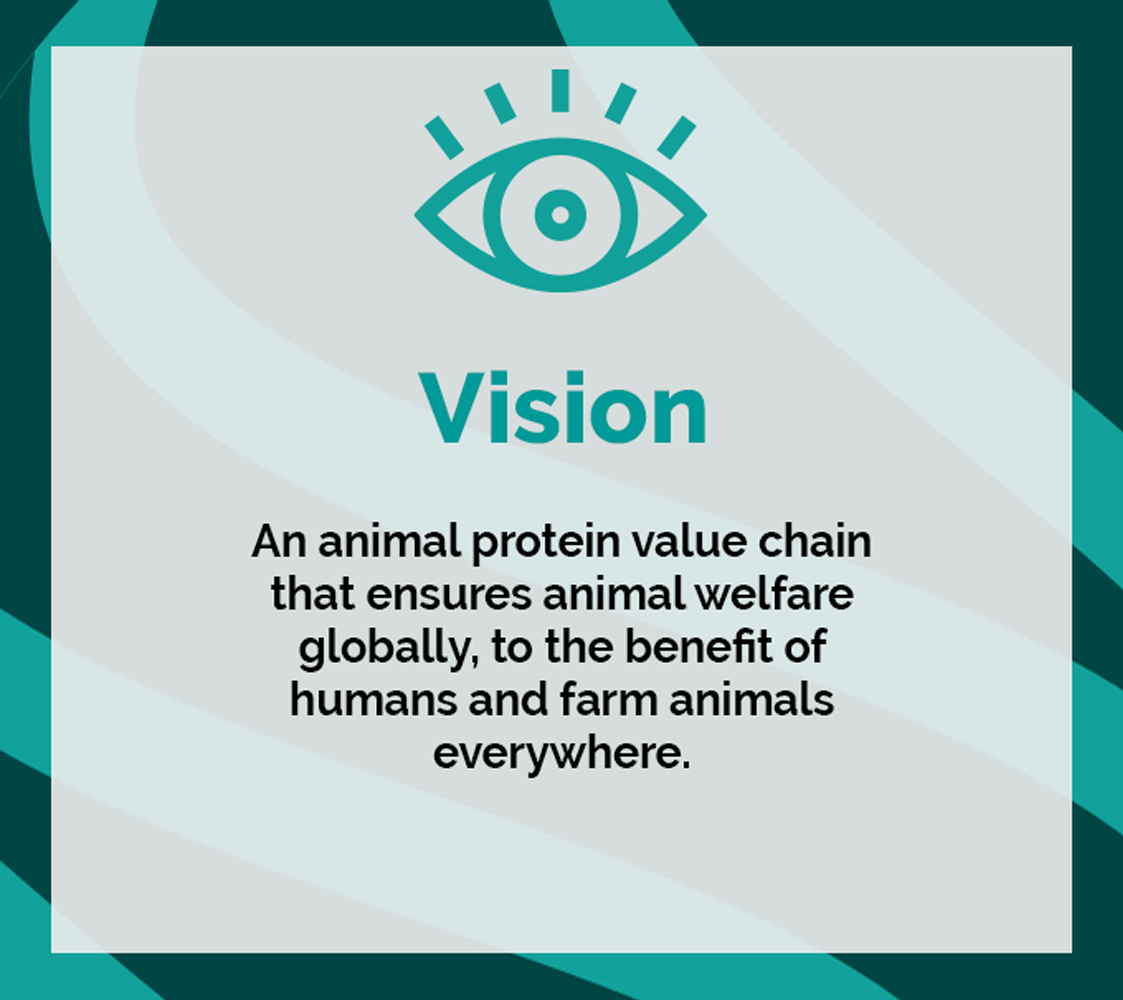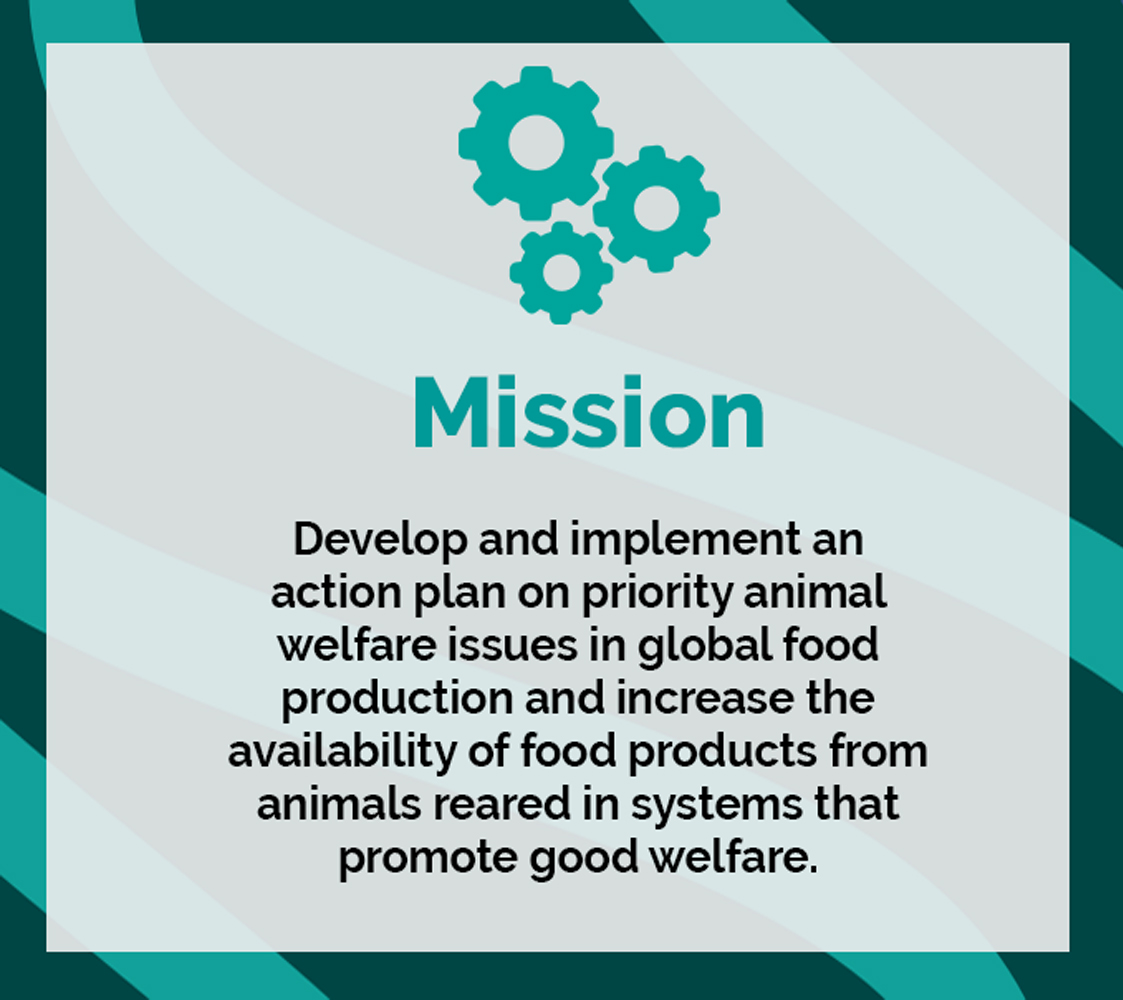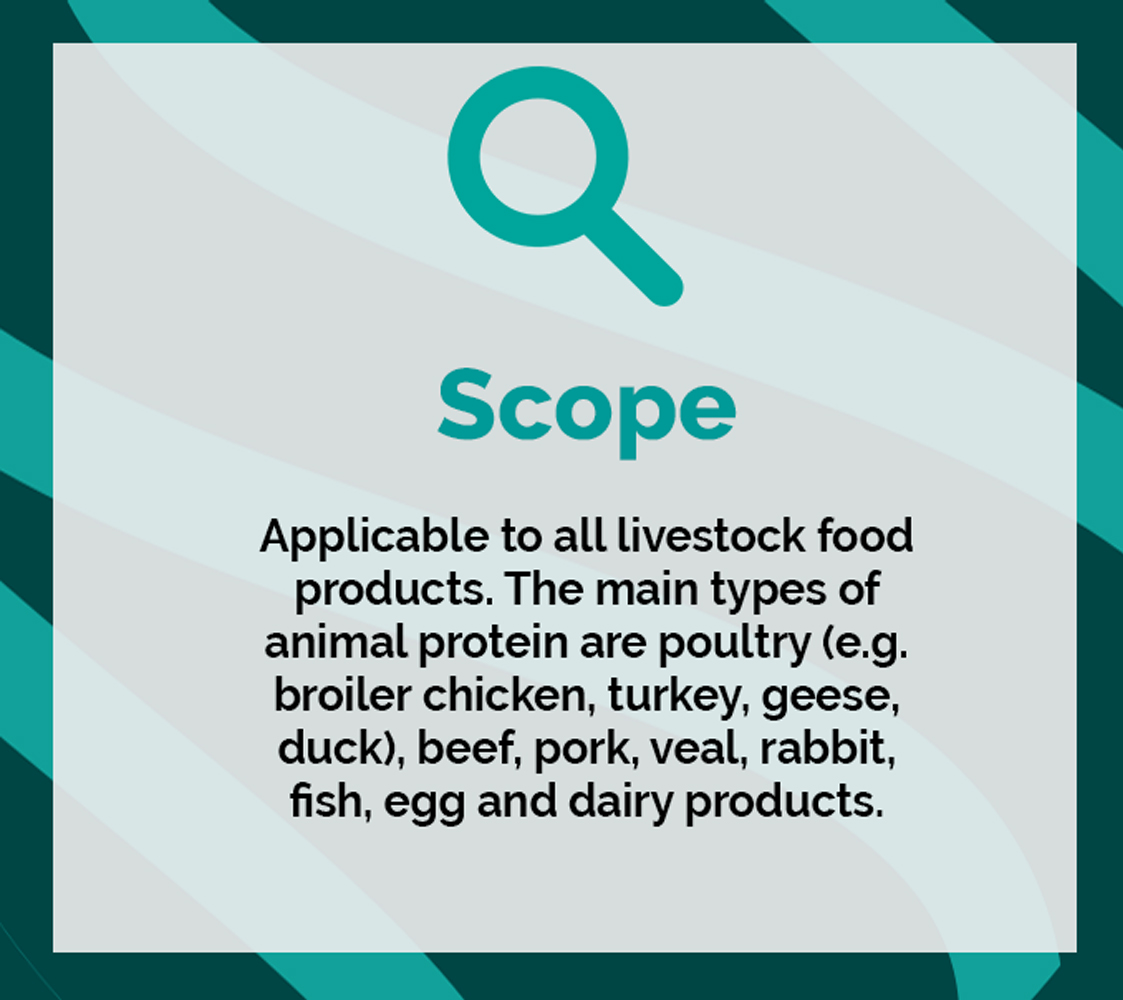The Global Coalition for Animal Welfare (GCAW) exists to bring together companies from across the food supply chain, from producers to manufacturers, retailers and food service companies to help identify and address barriers to improving animal welfare standards at scale and for the long term. Membership of the Coalition is open to organisations that share in the coalition’s vision and that are willing to work to achieve its objectives.
Find out more about who we are, why we exist, how we work, what we do and recent activities.



